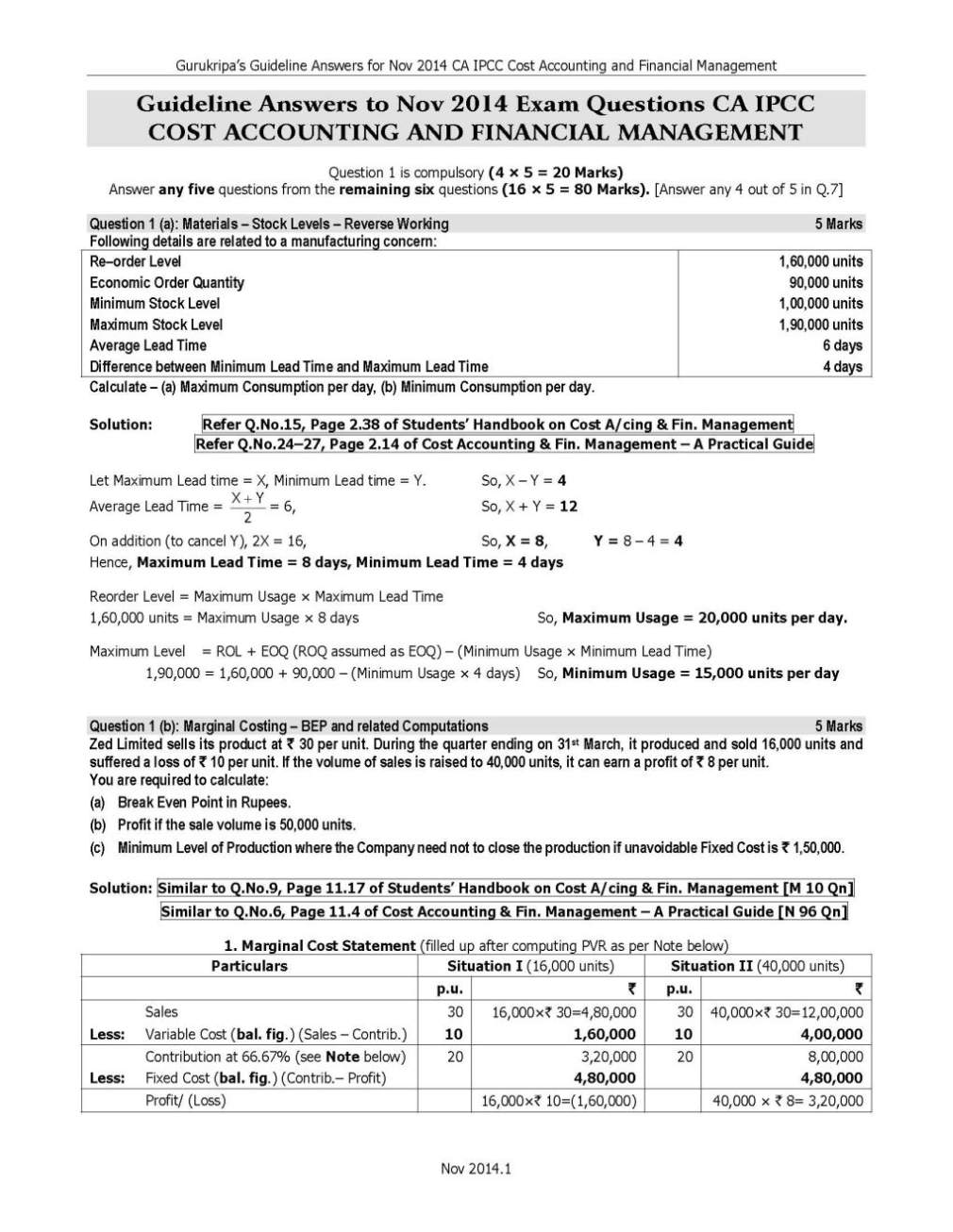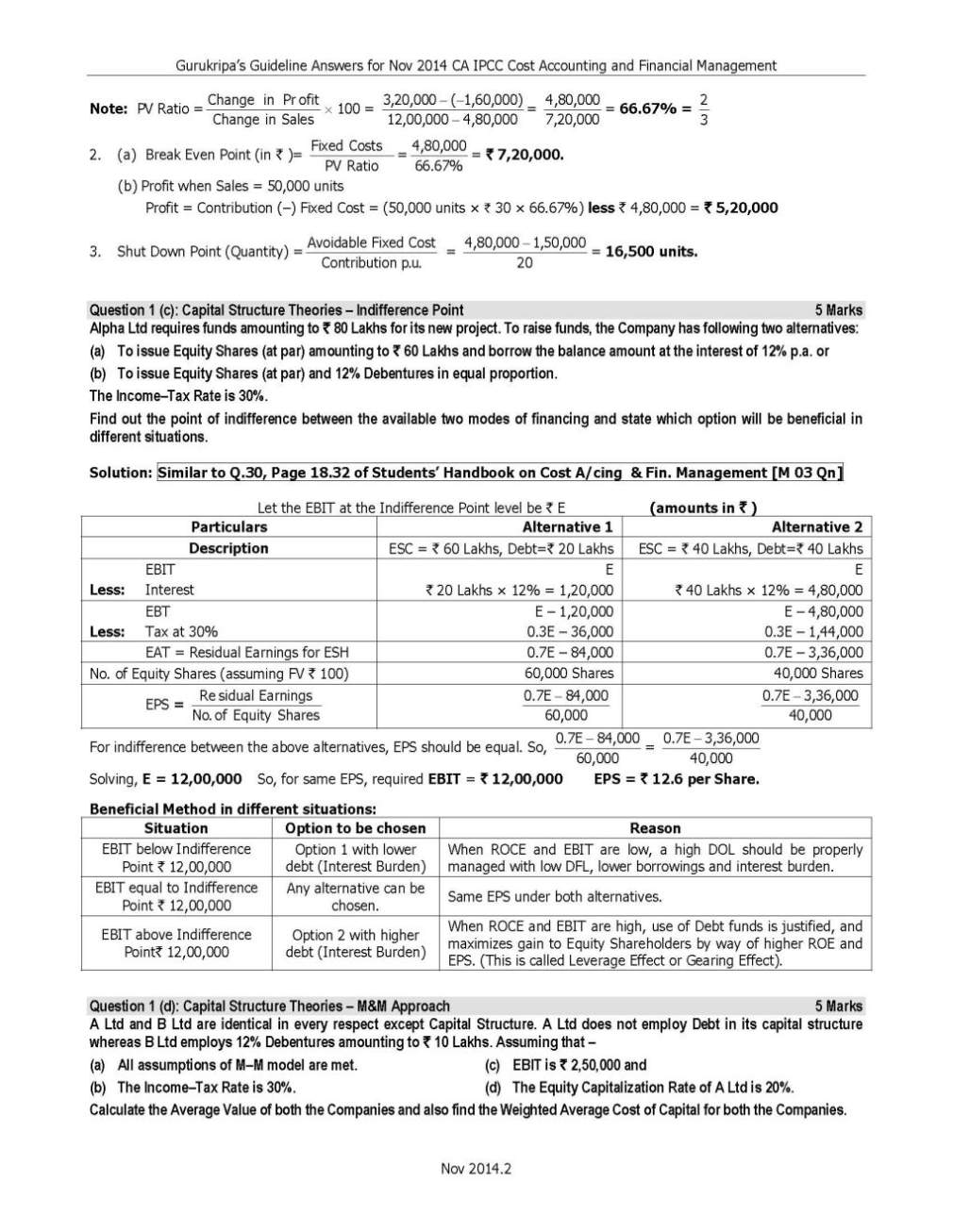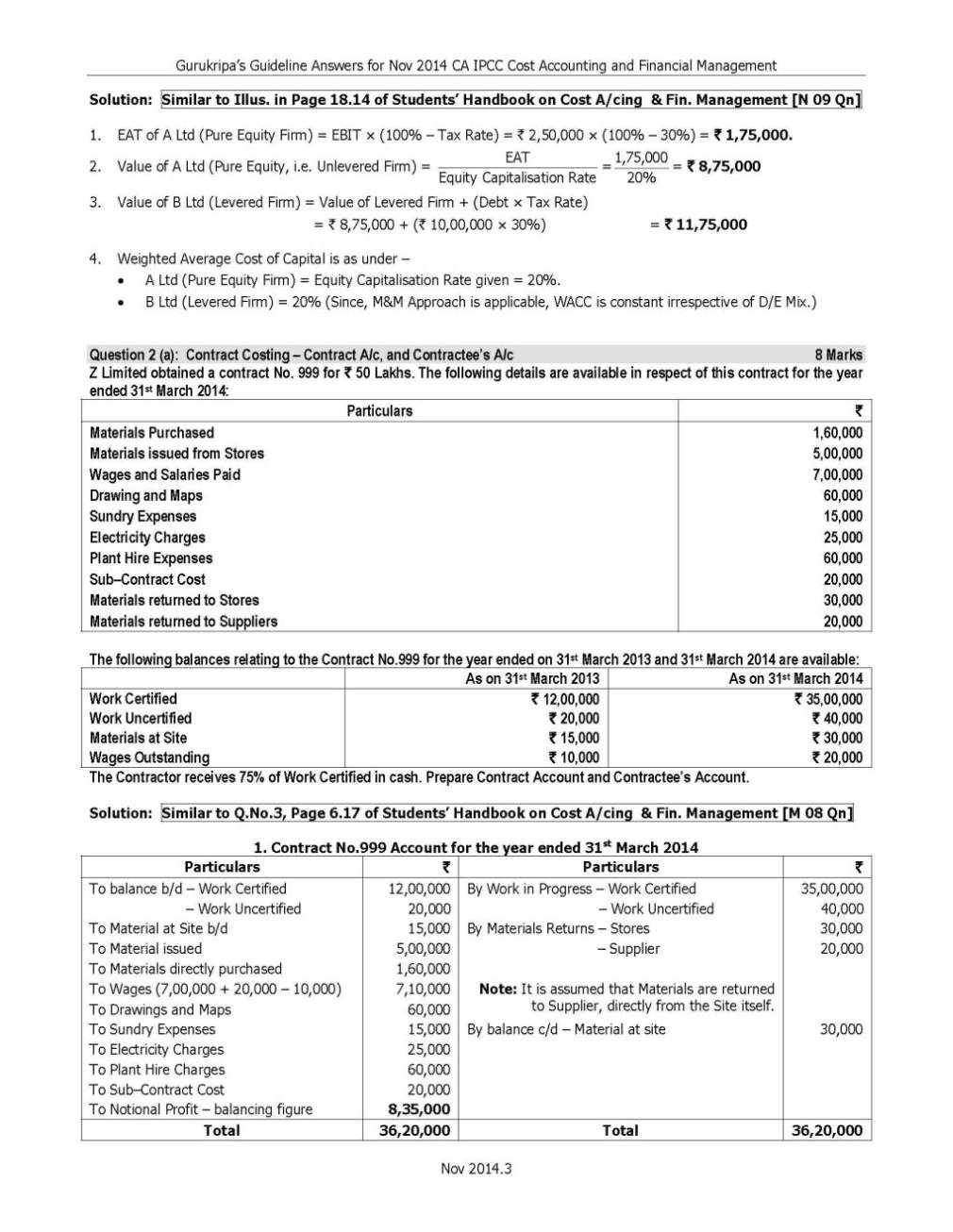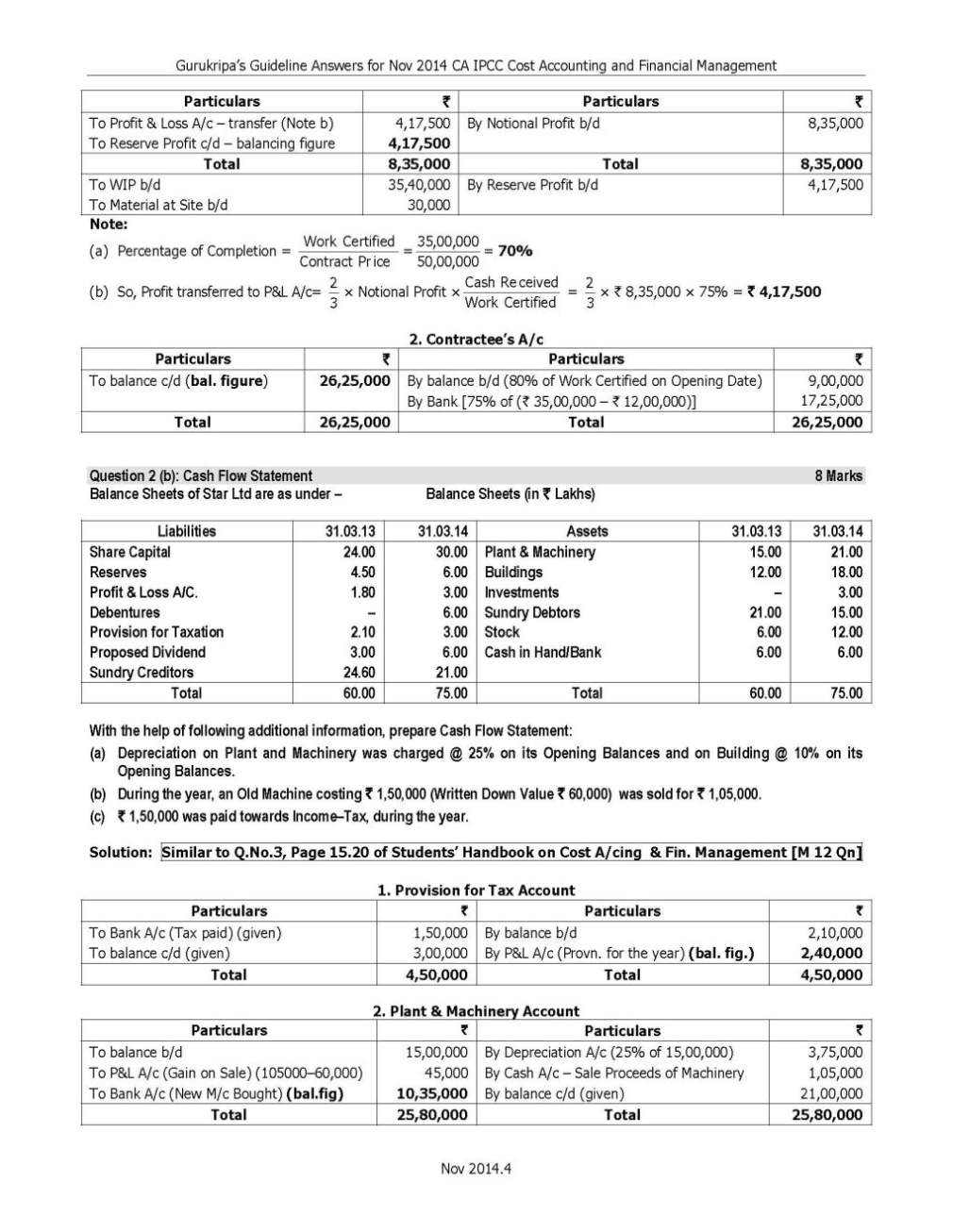|
#2
21st February 2015, 01:03 PM
| |||
| |||
| Re: IPCC Question paper
Here I am providing you previous year question paper of IPCC (Integrated Professional Competence Course)….. 1 Discuss the following – (a) Advantages and Disadvantages of Joint Audit. (b) Disclosure Requirement relating to Trade Receivables under Schedule III to the Companies Act, 2013. (Question Modified) (c) Indicate the factors which make it appropriate for an Auditor to send a new Engagement Letter for a recurring audit. (d) Enquiry from Management is helpful for Auditor to evaluate Subsequent Events. Discuss specific enquiries in reference of SA 560, which might have effect on the Financial Statements. 2 State with reasons (in short) whether the following statements are correct or incorrect: (Answer any eight) (a) Emphasis ofof Opinion. Matter Paragraph in the Auditor’s Report is a substitute of Disclaimer (b) The primary objective of an audit is to detect fraud and errors in Financial Statements. (c) The Statutory Auditor is required to verify inventory physically. (d) It is the responsibility of the Auditor to ensure that Statement of Profit and Loss and Balance Sheet of the Company shall comply with the Accounting Standards. (e) An Auditor’s External Expert is not subjected to Quality Control policies and procedures of an Audit Firm. (f) Extracts and Copies of important Legal Documents, Agreements and Minutes relevant to the audit is part of Current Audit File. (g) The Auditor shall express an Unqualified Opinion if the Auditor is unable to obtain sufficient audit evidence regarding the Opening Balances. (h) The First Auditor is generally appointed by the Company at a General Meeting. (i) Surprise Checks are part of Internal Check. (j) An Auditor is bound to provide copies ofCompany. the Working Papers to the CEO ofthe 3 How you will vouch/verify the following? (a) Assets acquired on Lease. (b) Investment in the Shares and Debentures of Subsidiary. (c) Provision for Income Tax. (d) Retirement Gratuity to Employees. 4 (a) Discuss in brief the types of Audit Risk and inter–relationship ofAudit Risk. the components of 4 (b) State the matters to be specified in the Auditor’s Report in terms of143(3) of the Companies Act, 2013. (Question Modified) provisions of Section 4 (c) Verification of Issue of Bonus Shares. 5 Discuss the reference to SAs. (a) “The degree of reliance that a Statutory Auditor can place on the work of the Internal Auditor is a matter of individual judgement”. (b) Explain the audit procedure when Principal Auditor is using the work of another Auditor. 6 (a) Mention any eight important points which an Auditor will consider while conducting the audit of a School. 6 (b) Purpose of providing Depreciation. 6 (c) Casting or Totaling is an important tool of audit for an Auditor. 7 Write short notes on any Four of the following. (a) Power ofComptroller and Auditor General ofIndia in performance ofduties. (b) Self–Revealing errors and four illustrations thereof. (c) Substantive Procedures. (d) Materiality and Audit Risk. (e) Companies not covered under Companies (Auditor’s Report) Order, 2003.     For more papers here I am attaching pdf file of IPCC Question papers |